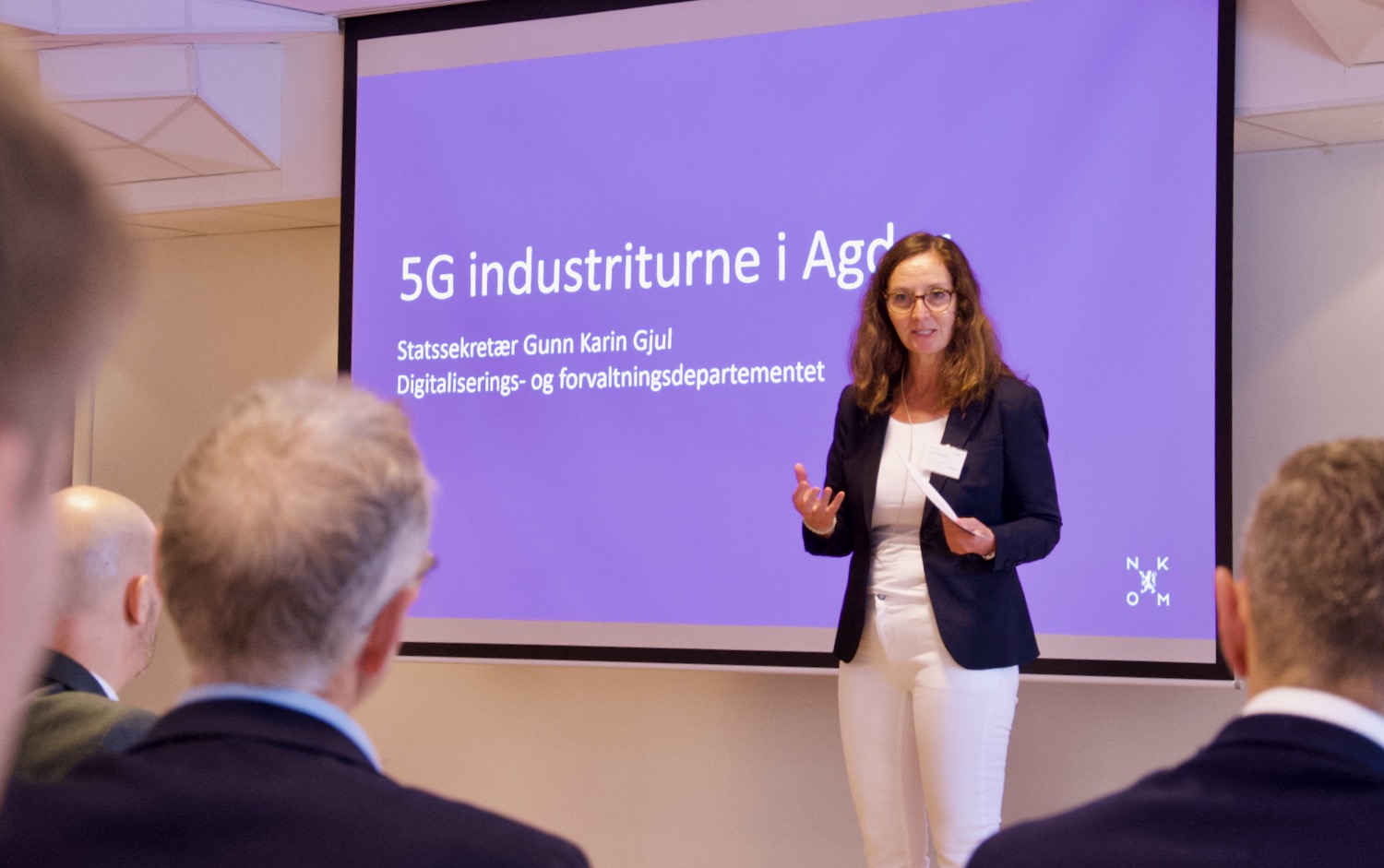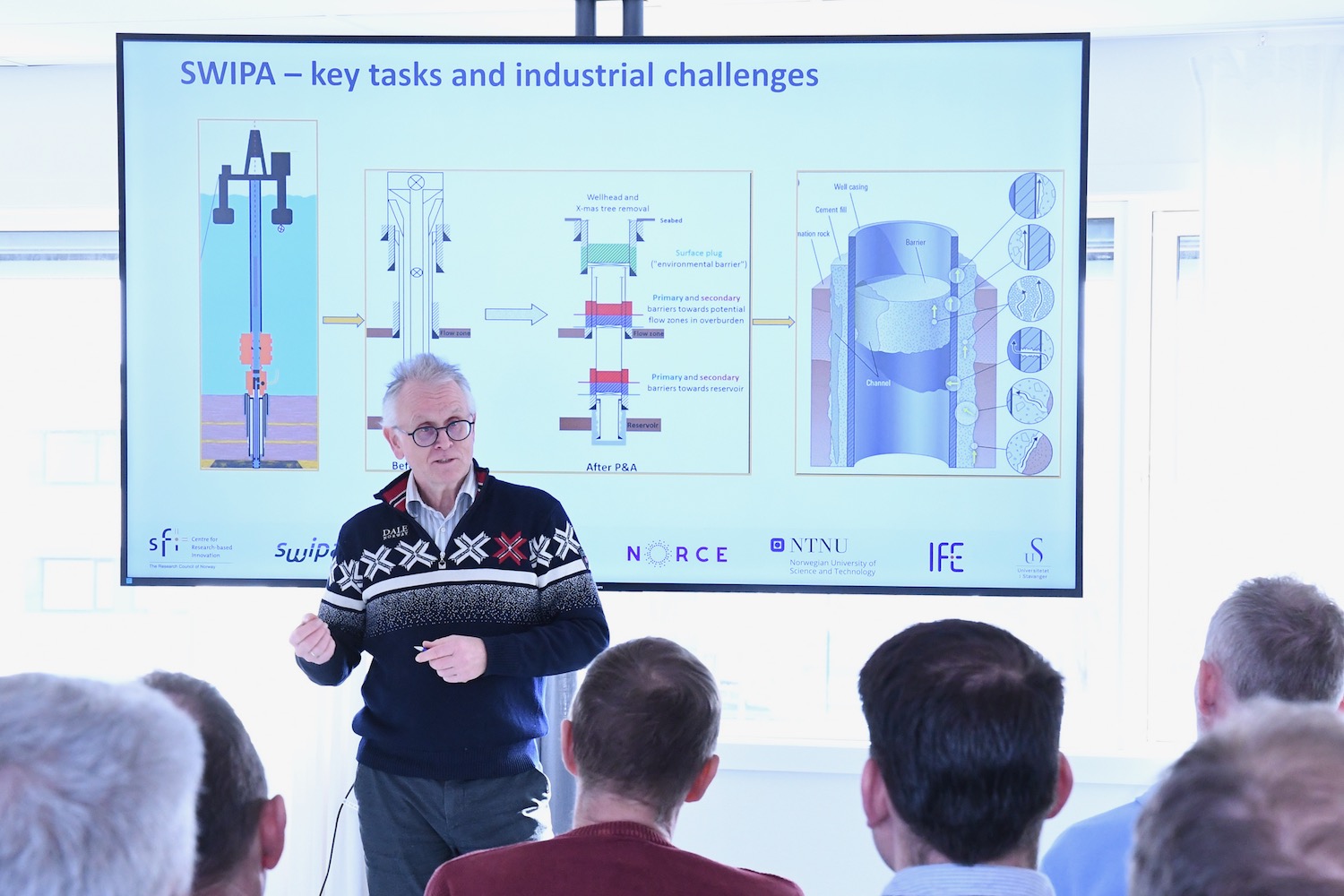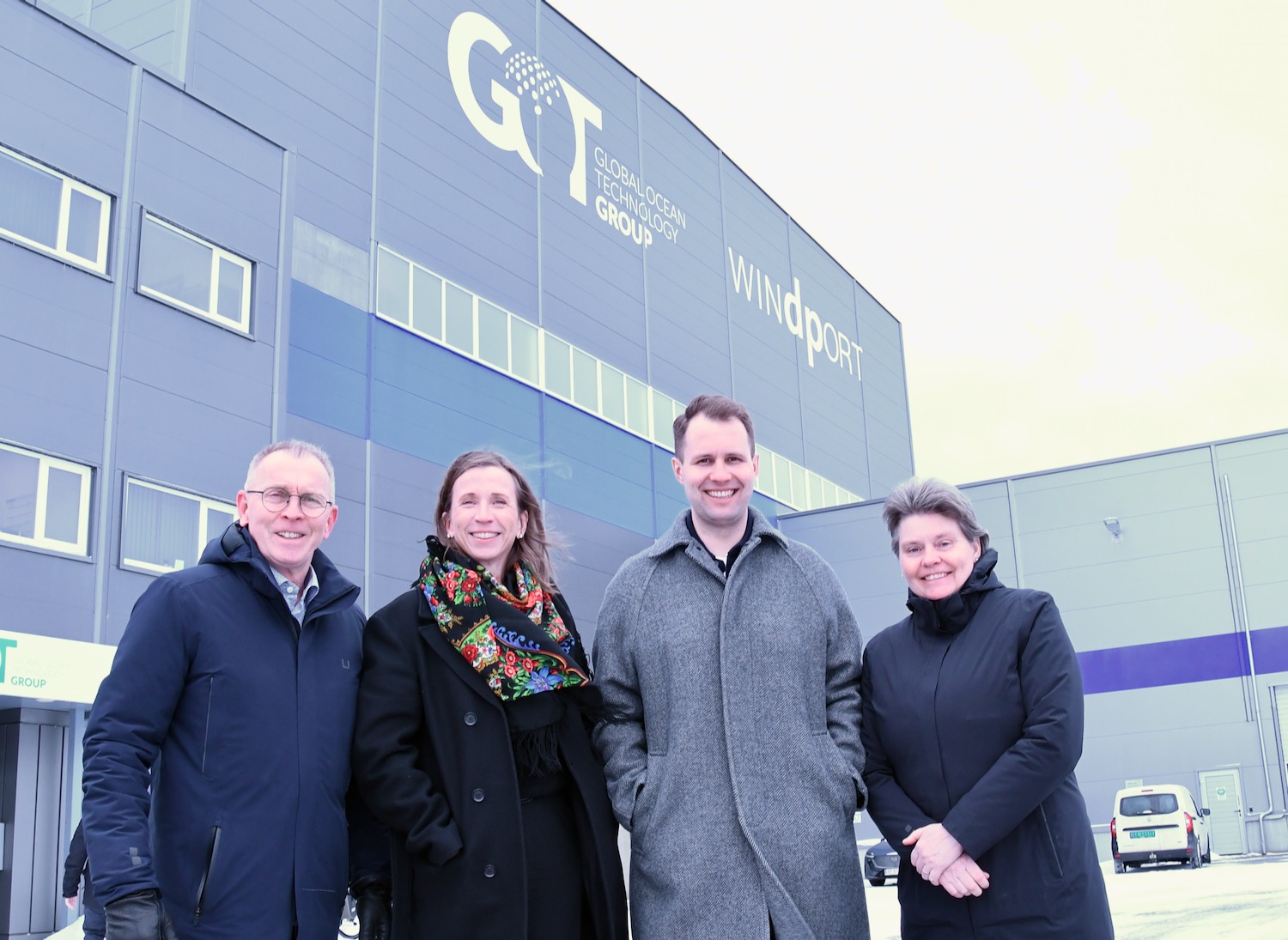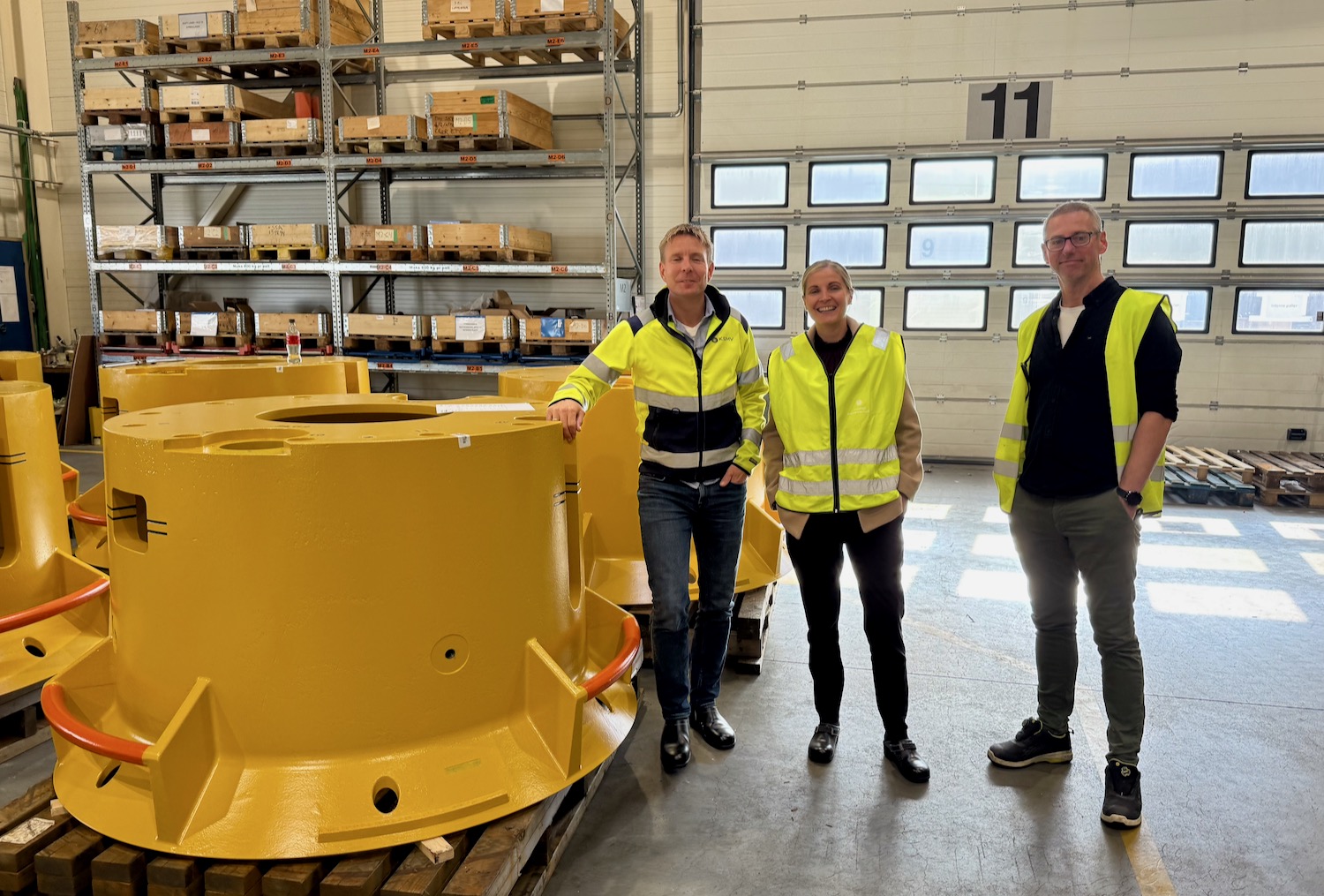“Companies in Silicon Valley should not be the only ones to extract value from a population that is among the earliest in the world to adopt new technology. The Norwegian business sector must make better use of 5G and artificial intelligence,” says Gunn Karin Gjul, State Secretary at the Norwegian Ministry of Digitalisation and Public Governance.
At a meeting at the National Communications Authority in Lillesand recently, Gjul kick-started a national tour designed to highlight the benefits and opportunities presented by 5G and AI.
“These are enabling technologies that can make industries more efficient,” said Gjul.
The tour is a series of meetings which also aims to identify bottlenecks and obstacles for putting 5G and AI to use in the business sector.
“We are digitizing the public sector – not because it is fun, but because it is an absolute necessity. Faced with a future of two working people per pensioner, compared to four working per pensioner today, we need to harness the power of 5G, the Internet of Things and AI. We must find ways to free up hands,” said Gjul.
Eirik Andreassen at Digital Norway, a co-host of the meeting series, said that we are still waiting for the real breakthrough for industrial use of 5G.
“Norway is one of the countries where 5G is most available. Nevertheless, very few companies use 5G for industrial purposes. We see the same trend in Europe. The reason is that 5G does not solve a fundamental problem. It creates new opportunities for the industry, which takes its time to materialize,” said Andreassen.
One Norwegian company that has had success with implementing 5G, is Posten/Bring. CEO Arne Erik Berntzen explained how 5G has improved postal services in more remote places.
The latter half of the meeting focused on artificial intelligence and included an introductory course on AI, presented by Digital Norway.



